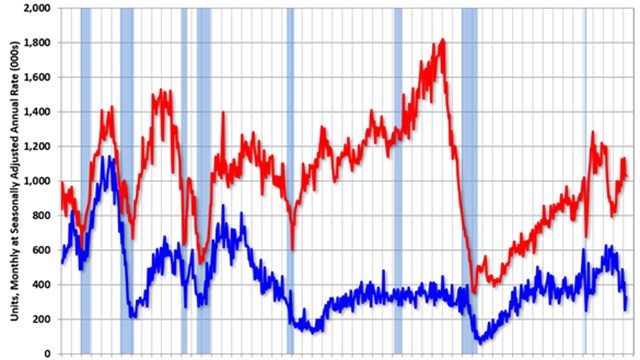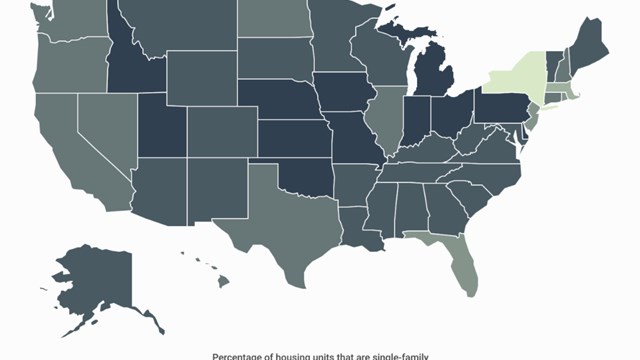One can be forgiven for not keeping up on the latest in technological development. When it seems like Apple is holding keynote events every 11 days to unveil the latest iPhone, it can be both mentally and financially exhausting to stay on the cutting edge of every cool new thing in gadgetry. From a professional standpoint however, a business must at least be aware of the apps, software, hardware, and other tools that can increase efficiency and keep them competitive. Property management companies that serve condominium and cooperative communities are by no means exempt from this.
Cloud-based computing and mobile apps have gone a long way toward replacing the file cabinets and paperwork that used to characterize association record-keeping, while making documents, records, and other important materials more accessible, and the day-to-day flow of information exponentially more simple. Management companies that still rely on antiquated means of communication and bookkeeping may find themselves struggling to keep up with their more cutting-edge rivals.
Day Planner
Technology can be immensely helpful when it comes to scheduling vendors, appointments, deliveries, etc., especially in a larger residential property where people and things are constantly coming and going. By logging announced visits into a central hub that can be accessed by approved parties from anywhere Wi-Fi is available, an association can greatly reduce confusion, conflicting schedules, and missed appointments. Replacing a potentially messy and confusing sign-in sheet with a readily accessible digital ledger is a reliable way to streamline association business, as well as to fortify building security.
“When it comes to accessing the property," says Ryan Kinser, senior property manager and director of concierge services for DDG, a real estate company with offices in New York, California, and Floria, "software is utilized and fulfillment is coordinated by the condominium team. “Maintenance visits, package delivery times and locations within residences can be customized as well. Even the reservation of a common roof and grill can be placed via local web- and app-based software.”
Passing the Word
Apps and software also enable a managing agent to update the board on a project or situation in real time, as opposed to the olden days when that agent would have to return to the office, compile a report, and send it to the association via post or fax.
“Our agents use project management software, and while that's standard in architecture, engineering, construction and other parts of the real estate industry, it's actually not so with property management,” says Julie Zuraw, chief operating officer at Manhattan-based Argo Management. “Everything that's happening in a building for a particular project is being incorporated into this program. If there's an ongoing capital project, you'll be able to find email conversations with the board, approved meeting minutes, the proposal, and any updates. It's all in one system, so instead of boards trying to track down a manager via email, we give them read-only access to the system that we use, such that they can just log on and look in at any time to see how things are going.
Zuraw also says that her company values the rigor that digital invoice approval allows them. According to her, a property manager typically would get an invoice for a job and sign off on it, sending it along to accounts payable to be paid out. “But with us, the manager signs off on an invoice,” she says, “and then it goes to our purchasing department, which is somewhat unique. Once they approve it, it then goes to the director of management for good measure. And even then, should the board want to look at it, they'll take a pass, sign off, and finally our president signs every check that leaves the building. Which is an unusually high level of rigor in the process of paying vendors. With the digital approval system, an invoice is scanned the minute it comes into headquarters, and everyone gets an email when it's their turn to approve, so those notices are pinging around, and we can get something approved very quickly, as opposed to the past when people had to literally pass papers around.”
She notes that even just in the last few years, smartphone technology has dramatically altered the property management industry. “We've been focusing on new technologies that allow us to collaborate with our boards in a new way, because we're living in a new world,” Zuraw acknowledges. “By trying to omit people hunting each other down by email or phone and having everyone look at the same system, which is being updated live, we're easing communication between boards and management.”
Simplifying Systems
Not only can boards and managing agents reach each other via apps and software innovations, but they can remotely access and control certain systems within their properties.
“Buildings are increasingly taking advantage of automated building maintenance systems (BMS) or building information systems (BIS),” says Doug Weinstein, vice president of Project Management Group, which has offices in New York and Florida. “Basically, you're dealing with a collection of different types of sensors and controls on various pieces of equipment throughout a building that tie into a central hub, which allows building staff to monitor the property electronically. This includes heating and cooling, water temperatures in various apparatuses, the status of fuel tanks, leak detection, whether an association needs to order oil...”
He also adds that “With some of these systems, you're not simply monitoring, but can control remotely. And while the upfront costs are not cheap, these innovations will pay for themselves in time, thanks to increased efficiency and monitoring. For example, if a condensate pan overflows, or there's a leak from the AC unit, the building staff monitoring the property can detect it immediately, which can potentially save a building tens of thousands dollars for a single instance.”
The Future, Now
The potential downside with increasingly streamlined avenues of communication is that they will usher in expectations for accessibility and responsiveness that a property management company may struggle to meet.
“Everyone is on their email all day, and people send things as soon as they occur to them,” says Zuraw. “We want to service every client at the highest level, and there's this expectation of immediacy. So some of our job is managing those expectations. But, to the extent that we can, we're implementing technologies that make things simpler for everyone, and better connects us, systemically.”
Really, the burden falls on the management company to adapt to evolving tech and any alterations to their workload or business practices that comes with. Those that can seamlessly integrate the latest apps and software will excel, while those that struggle may find themselves fading in their industry.
Of course, no mobile application or program can ever take the place of good old fashioned face time. As Kinser warns, “The technology alone is not sufficient to ensure optimal operations; the human element is still crucially important.”
Mike Odenthal is a staff writer at The Cooperator.







Leave a Comment